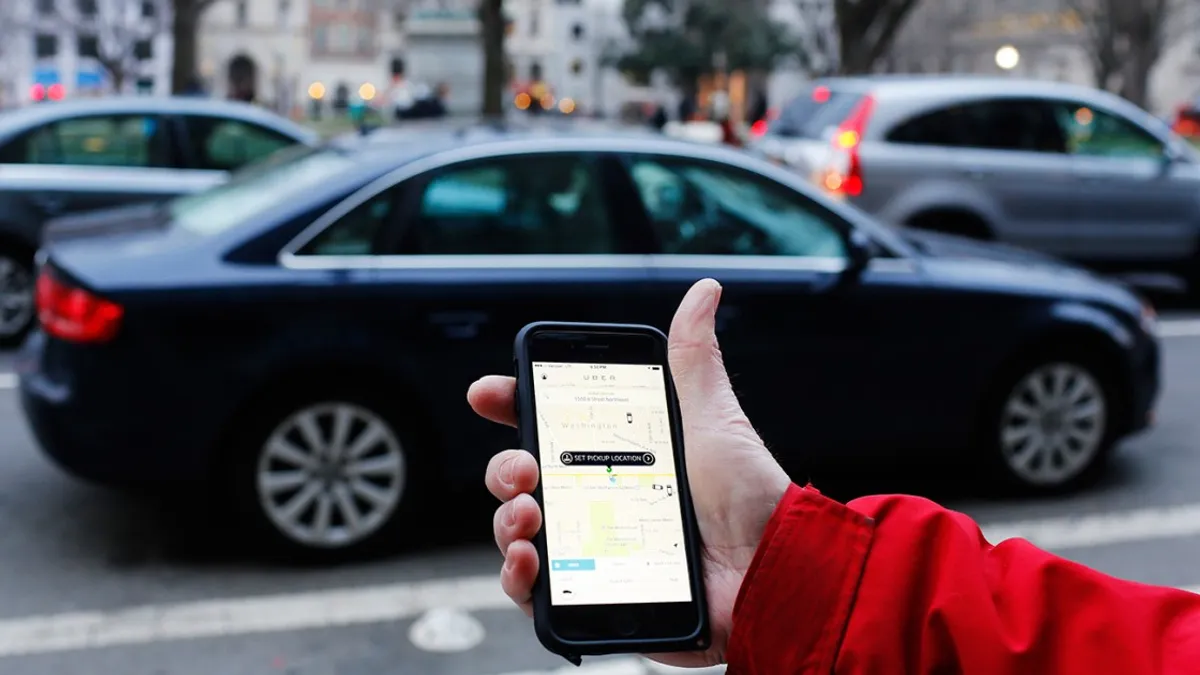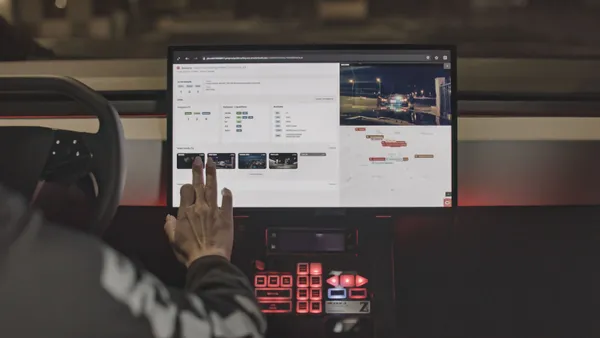UPDATED, May 24, 2018: Washington, DC Mayor Muriel Bowser has publicly criticized the DC Council's proposal to hike the city's ride-hailing tax to 6%, according to The Washington Post. While Bowser supports a tiered system that would tax "private" rides (like UberX) at 5.35% and shared rides (like UberPool) at 1%, the council still wants to see a 6% tax on all trips — a recommendation that Bowser called unfair.
By "raising the per ride tax for ridesharing companies to six percent across the board, the Council disincentivizes the use of pooled rides and unfairly disadvantages lower-income riders who rely on pooled service," she wrote.
Ride-hailing companies like Uber and Lyft have sided with Bowser in her push for a tiered system, though the council has dismissed those companies as "contribut[ors] to traffic congestion." Meanwhile, Uber has also issued a statement noting its concerns about the risks of the council's data-sharing proposals.
Dive Brief:
- The Washington, DC Council on Tuesday introduced a proposal that would hike the city's "gross receipts tax" on ride-hailing services like Uber, Lyft and Via from 1% to 6% — more than the originally-proposed hike to 4.75% introduced by Mayor Muriel Bowser in March — according to The Washington Post.
- The council argued that Bowser's original plan would only raise $18 million to fund the city's Metro rail system, while the new proposal would raise $23 million. Bowser, however, criticized the latest proposal and expressed dissatisfaction with tweaks that were made to the budget, which received an initial vote of approval after being proposed.
- The council also proposed that ride-hailing services be required to submit data regarding operational and driver information to the District's Departments of Transportation and For-Hire Vehicles, beginning with 2018 data to be due in January 2019. Proponents argue that this data is vital for congestion and sustainability planning, while opponents cite privacy and security concerns.
Dive Insight:
If the proposed 6% tax is to receive a final vote of approval, riders would see an approximate 60-cent fee on a $10 ride, assuming the ride-hailing services decide to pass the tax on to its customers instead of absorbing it internally. And while an extra 60 cents for every $10 ride may seem minimal to some riders, the costs add up, especially in a city where ride hailing is heavily utilized.
The 6% tax hike comes in the wake of Uber CEO Dara Khosrowshahi's guidance for the city to implement a tax that is "fair and equitable." Khosrowshahi and Bowser spoke at an event together in April, during which the leaders both emphasized a desire to fund public transportation in a way that is appealing to all parties.
The tax and data-sharing proposals are now muddying the waters between the city and its private sector counterparts, which could be detrimental to the growth of such services in DC — and potentially have a negative impact on the city's overall culture of shared mobility. Officials from both Uber and Lyft noted that the proposals are "disappointing."
DC is looking to follow in the footsteps of Chicago, which was the first city to create a ride-hailing fee dedicated to transit. This is "making it possible to continue to invest in the latest technology and improvements that enhance commuting and improve the quality of life in our city," Chicago Mayor Rahm Emanuel said in a statement at the time. Through that fee — an extra 15 cents per trip, which the city began collecting in January — Chicago has already been able to invest in its Safe and Secure initiative which will add security cameras, new lighting and video monitors to rail stations across the city.
If DC is successful in collecting appropriate funds for Metro improvements, it could encourage a shift in how residents move around the city. Washington Metropolitan Area Transit Authority (WMATA) has faced a decline in ridership over the past few years due to faulty services and schedule delays, which has ultimately increased the popularity of ride-share services — and the number of cars on the road. Through improved services and rider-focused programs, DC has a crucial opportunity to reinvigorate public transit and increase city mobility while decreasing congestion.











